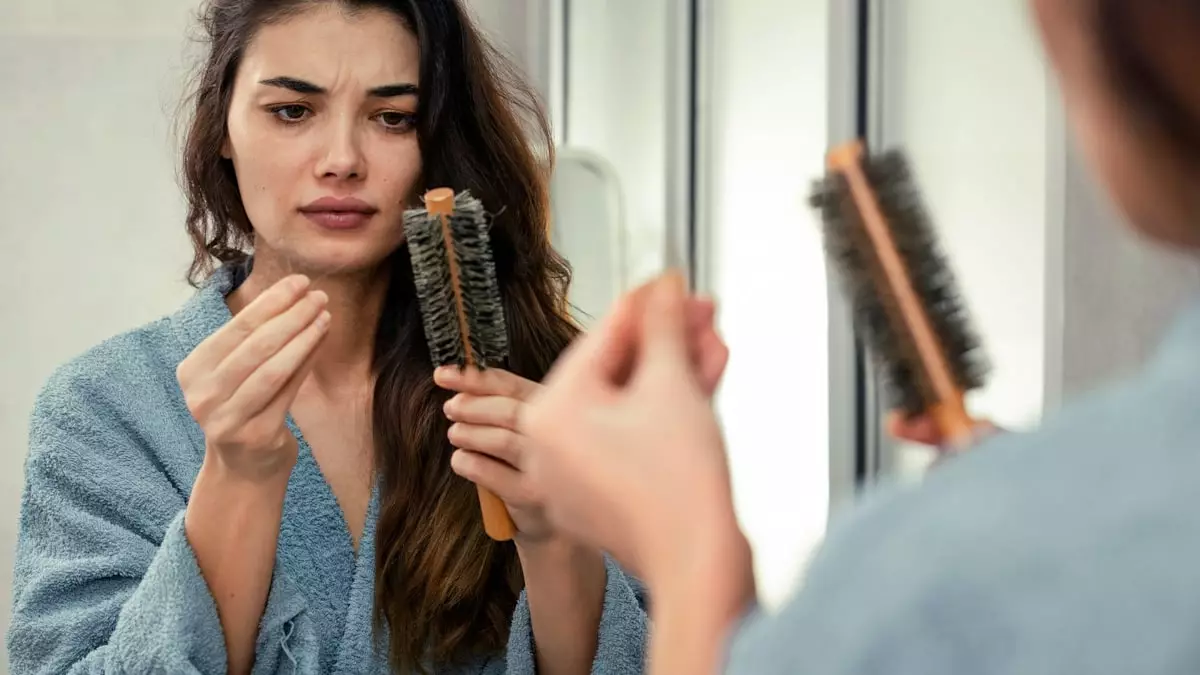With the rapid rise in popularity of weight loss medications like Mounjaro, an increasing number of individuals are excited about their potential for achieving significant weight loss and improved health outcomes. However, a troubling trend is accompanying this enthusiasm: heightened reports of hair loss among users. As the interest around “Mounjaro hair” escalates—evident from over a 250% surge in online searches—users are sharing alarming testimonials about experiencing noticeable hair thinning. While hair loss isn’t universally experienced by all who take Mounjaro, the overwhelming anecdotal evidence has sparked legitimate concern and commotion.
The Mechanism Behind Hair Loss: Weight Loss and Its Impacts
It’s essential to differentiate between the direct effects of Mounjaro and the conditions it may create, which can inadvertently lead to hair loss. Mounjaro, a GLP-1 receptor agonist, primarily functions by enhancing blood sugar management while promoting weight reduction. However, rapid weight loss itself poses a myriad of physiological effects on the body, triggering stress responses that could suppress hair growth.
As the body quickly sheds pounds, it can enter a survival mode where non-essential processes, such as hair growth, are deprioritized in favor of vital functions. This results in a higher number of hair follicles transitioning into a resting phase and subsequently leading to increased shedding. Compounding this is the effect of appetite suppression associated with Mounjaro, which often means users may not consume a balanced diet rich in vital nutrients required for healthy hair growth—such as proteins, iron, and essential fatty acids.
Nutritional Support: Fueling Your Hair’s Strength
To navigate the potential nutritional pitfalls of Mounjaro, it’s crucial to be proactive in ensuring an adequate intake of vital nutrients. First and foremost, incorporating high-quality protein sources into every meal is essential; consider options such as eggs, lean meats, legumes, and nuts for diversity. Moreover, healthy fats play a pivotal role not just in overall health but also for hormone production, crucial for scalp vitality. This includes foods like salmon, avocados, and nuts that can help enhance scalp health and consequently hair resilience.
Beyond macro-nutrients, it’s vital to recognize the correlation between stress and hair health. While Mounjaro in itself isn’t perceived as stressful, the life changes associated with weight loss often introduce a degree of emotional and physical stress. Elevated cortisol levels, a response to stress, can interfere with hair growth cycles, leading to further hair loss. Thus, prioritizing stress management strategies—whether through mindfulness, meditation, or yoga—should be a top consideration alongside physical health.
Hydration and Hair Health: The Overlooked Connection
One critical element that can severely hinder hair regrowth is hydration. Users of Mounjaro often note reduced thirst cues, which can inadvertently lead to dehydration. This not only affects overall bodily functions but diminishes blood flow to hair follicles, reducing oxygen and nutrient delivery vital for hair health. Establishing a conscious hydration habit—by drinking at least 1.5 to 2 liters of water daily—is paramount. Integrating electrolyte-rich foods and drinks can enhance hydration absorption and mitigate the risks posed by fluid loss.
Moreover, collagen—known for its role in skin elasticity and strength—also significantly contributes to hair health. With age, stress, and nutrient deficiencies, our body’s natural collagen production can falter. To counter this, consider introducing collagen-boosting foods, like citrus fruits and berries, while potentially adding a supplement to your routine for a proactive approach to hair resilience.
Innovative Treatments: Modern Solutions for Hair Restoration
As scientific advancements pave the way for innovative treatments, options such as RF microneedling, particularly the Sylfirm X with Morphiya, come into play as promising avenues for hair restoration. This state-of-the-art therapy combines radiofrequency technology with exosome therapy to stimulate blood circulation and reawaken dormant hair follicles. By directly delivering essential nutrients to the hair follicles, this method helps rejuvenate the scalp and can be viewed as a proactive strategy for those experiencing hair loss during their weight loss journey.
Additionally, this evolving conversation surrounding hair loss must broaden to include the voices of women who frequently grapple with this issue. With nearly 40% of women experiencing hair loss at some point, traditional narratives often framed hair loss primarily as a male problem need reevaluation. Experts urge for recognition and supportive dialogues that empower individuals—especially women—by addressing their unique concerns and experiences.
Navigating weight loss while managing hair health is undeniably intricate, yet with heightened awareness and strategic nutritional choices, individuals can reclaim control. It is essential to prioritize self-care, from dietary habits and hydration to innovative treatment options—all while challenging societal narratives surrounding hair loss and fostering a more inclusive dialogue. Caring for hair, alongside pursuing health transformation, is not just about aesthetics; it reflects self-worth, confidence, and empowerment.

